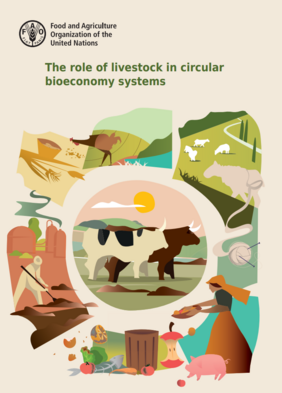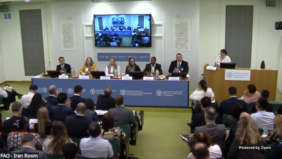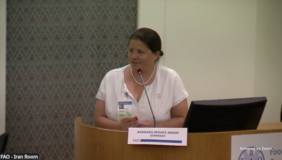The sustainable transformation of livestock farming is a key lever for advancing food security, climate and environmental protection and rural development worldwide. Two new reports from the Livestock Environmental Assessment and Performance (LEAP) Partnership were presented at the FAO's Global Conference on Sustainable Livestock Transformation, which started yesterday. As one of the three Coordinating Lead Authors of the Technical Advisory Group, ATB scientist Prof Dr Barbara Amon made a significant contribution to the report on the role of livestock farming in sustainable bioeconomy systems. The reports provide practical tools and methods to better assess and specifically improve the ecological, social and economic performance of livestock farming.
Livestock systems play a key role in the bioeconomy: they utilise residues, provide high-quality food, generate renewable energy and contribute to rural incomes. By integrating circular principles and ecosystem services, livestock systems can become more sustainable and resilient - a decisive factor for a resource-efficient agricultural and food economy. The Food and Agriculture Organisation of the United Nations (FAO) recently published two new reports on this topic.
Ecosystem Services Assessment in Livestock Agroecosystems
This report provides a systematic approach to the assessment of ecosystem services in livestock agroecosystems. It describes approaches and indicators to comprehensively record positive and negative environmental impacts - such as cultural landscape, carbon sequestration, biodiversity conservation, water quality or greenhouse gas emissions. The aim is to provide decision-makers and practitioners with a solid basis for management decisions and policy decisions.
Role of Livestock in Circular Bioeconomy
The second report examines the role of livestock in a circular bioeconomy. It shows how livestock farming can close nutrient cycles, utilise residues from agriculture and the food industry, produce biogas and improve soils. At the same time, he identifies challenges and opportunities for designing circular approaches safely and efficiently, thereby advancing the UN Sustainable Development Goals.
Amon, B., Becquet, P., McAllister, T. et al. 2025. The role of livestock in circular bioeconomy systems. FAO, Rome. doi.org/10.4060/cd6765en
Special Issue "Livestock - an essential component of a circular bioeconomy"
To accompany the report, a special issue was published in the specialist journal Animal Frontiers, which takes a comprehensive look at the role of livestock farming in circular bioeconomy systems. With the participation of 36 experts from 23 countries - including Prof. Amon, who edited the special issue - synergies, conflicting goals and interactions between animal production and the circular economy are analysed, from the use of non-edible biomass to the use of by-products for pharmaceuticals, cosmetics and bioenergy.
At the Global Conference on Sustainable Livestock Transformation, the two reports were officially published and presented by the TAG leads - including Prof Dr Barbara Amon from ATB. In a high-level panel discussion, representatives from politics, research and practice discussed how the recommendations can be integrated into national and international programmes and implemented through cooperation and partnerships.
Prof Dr Barbara Sturm, Scientific Director at the ATB, praised the commitment of her colleague: "With her high level of expertise and her great dedication, Prof Barbara Amon is making a decisive contribution to shaping global recommendations for sustainable animal husbandry. This commitment emphasises the international importance of our research and fits seamlessly into the ATB's strategy of developing practical solutions for a sustainable bioeconomy."
Background
The new reports are the result of the work of the Technical Advisory Groups (TAGs) within the LEAP Partnership, which was established by the FAO and works in close cooperation with the United Nations Environment Programme (UNEP). The aim of this partnership is to develop globally harmonised methods and indicators for assessing livestock farming. The TAGs pool the expertise of international experts and draw up scientifically sound recommendations. The new FAO reports provide policymakers, businesses and practitioners with concrete tools to make sustainability progress measurable and to anchor ecosystem and circular approaches in livestock farming systems.




